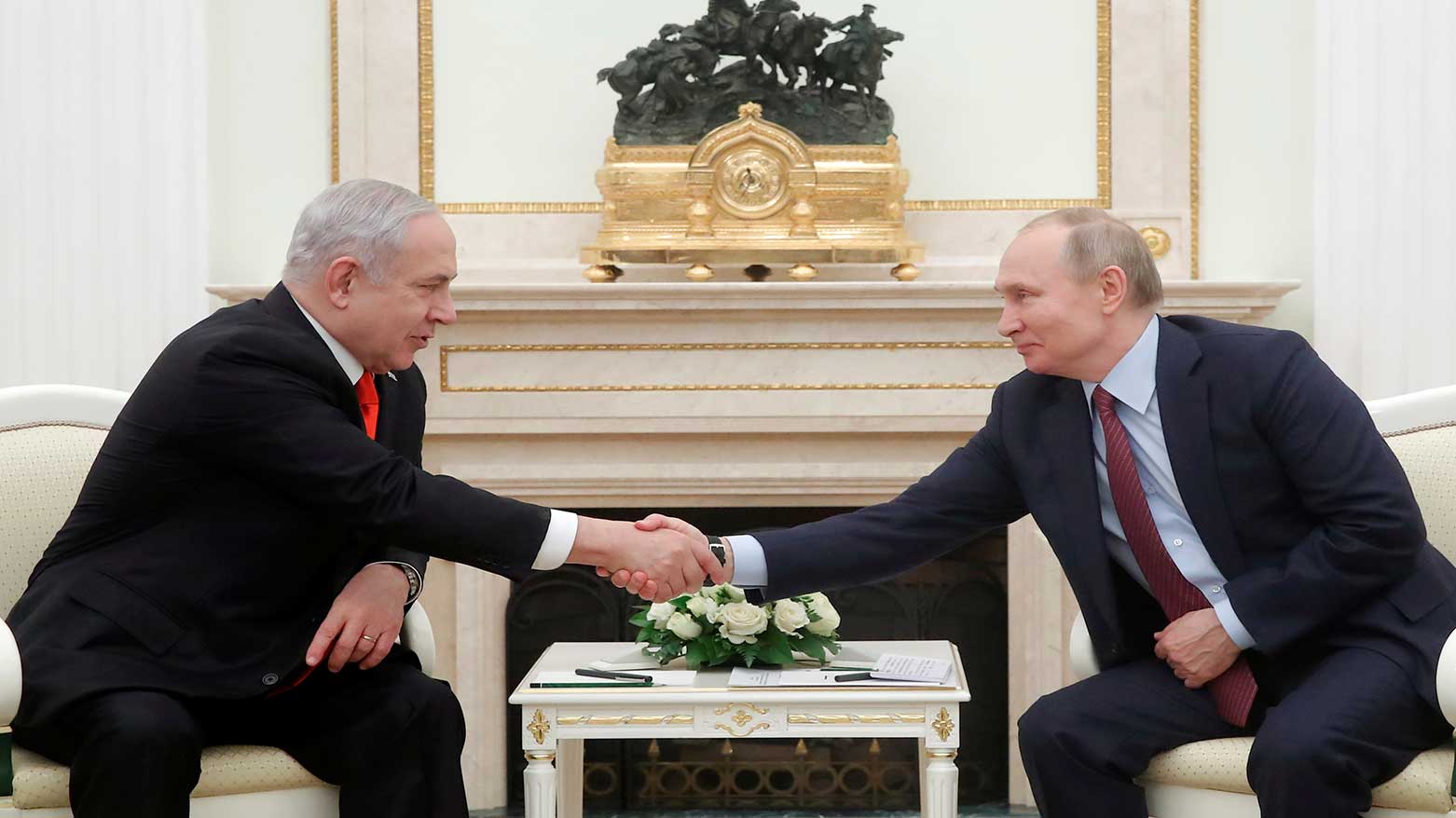Putin, Netanyahu Discuss Gaza Ceasefire as U.S. and Russia Push Rival Plans at U.N.
Washington seeks swift approval of Trump-backed ceasefire blueprint while Moscow counters with a statehood-focused proposal.

ERBIL (Kurdistan24) — Russian President Vladimir Putin and Israeli Prime Minister Benjamin Netanyahu held a phone call on Saturday to discuss the rapidly shifting dynamics in the Middle East, focusing heavily on the fragile Gaza ceasefire and ongoing international negotiations over its future framework, the offices of both leaders said in a joint statement.
According to the statement, the two leaders reviewed the implementation of the ceasefire agreement between Israel and Hamas, including the exchange of Israeli hostages and Palestinian prisoners.
They also discussed concerns over Iran’s nuclear program and prospects for further stabilization efforts in Syria.
The call came as the United States intensified its push on Friday for a U.N. Security Council consensus behind its latest draft resolution on Gaza—one that endorses President Donald Trump’s 20-point ceasefire plan and establishes a new “Board of Peace” transitional authority he would lead.
Russia, however, circulated a competing proposal that removes the transitional authority component and calls on the U.N. to consider options for an international stabilization force.
Washington and eight countries involved in brokering the ceasefire — Qatar, Egypt, UAE, Saudi Arabia, Indonesia, Pakistan, Jordan, and Turkey — issued a joint call for “swift adoption” of the U.S. draft.
Diplomats say both the U.S. and Russian drafts are expected to be put to a vote this week, with the American proposal likely to secure the nine votes needed to pass if Russia and China opt to abstain rather than veto.
U.S. Secretary of State Marco Rubio reiterated that Trump’s ceasefire blueprint “is the best path to peace in the Middle East,” stressing that the U.S. resolution would authorize a broad international stabilization force in Gaza — a provision several Arab and regional states have said they consider essential before contributing troops.
Facing pushback from several council members for insufficient clarity on Palestinian statehood, Washington revised the text to state that once reforms within the Palestinian Authority are completed and Gaza’s reconstruction advances, conditions “may be in place for a credible pathway to Palestinian self-determination and statehood.”
Russia’s rival draft, obtained by the Associated Press, includes more forceful language affirming a two-state solution and emphasizes that Gaza and the West Bank must be united under the Palestinian Authority.
Moscow argues that the Security Council must uphold its long-standing mandate to reinforce previous decisions on Palestinian statehood and ensure accountability in the ceasefire’s implementation.
In a statement, Russia’s U.N. mission said its text aims “to amend the U.S. concept and bring it into conformity” with existing council resolutions while acknowledging the pivotal mediation roles of the United States, Qatar, Egypt, and Turkey.
It also praised elements of Trump’s plan that facilitated the ceasefire, hostage releases, and humanitarian access.
The U.S. mission to the United Nations, meanwhile, warned on Thursday that “attempts to sow discord” at this stage could have “grave and entirely avoidable consequences for Palestinians in Gaza,” urging council members to unite behind the revised American draft in the coming vote.